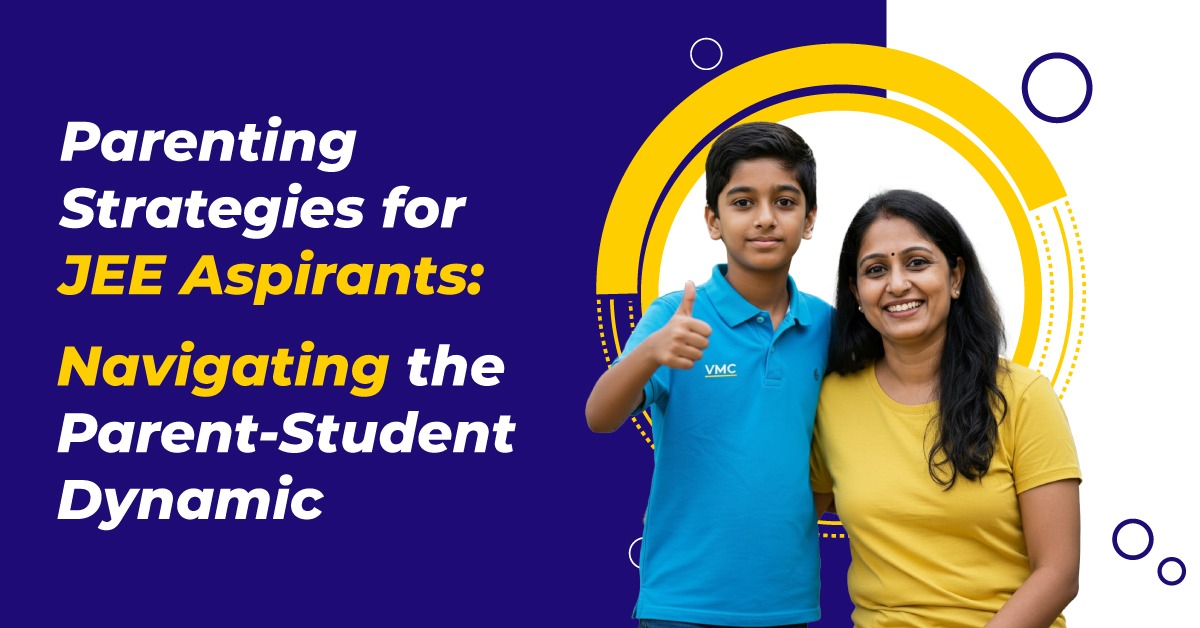
The journey to JEE success is rarely walked alone. Behind every successful JEE candidate stands not just rigorous preparation, mock tests, and countless hours of study, but also a family ecosystem that either propels them forward or inadvertently holds them back. As Manmohan Gupta, an IIT Delhi alumnus and seasoned educator, shared in a candid session with parents, effective parenting strategies can make the difference between a student who thrives under pressure and one who crumbles beneath expectations.
The Teenage Brain: Science Behind the Struggle
Manmohan Bhaiya gives the following insight into teenage behavior: parents are refreshed by the idea that rarely is it ever about poor parenting or rebellious children. Recent studies in neuroscience show that teenage brains actually work pretty differently than adult brains. Adults usually think with their prefrontal cortex—that’s the part that’s logical and thinks about what might happen later on. But teenagers mainly use the emotional parts of their brains. This is why a student prepping for the JEE might make choices that don’t make sense to their parents, even when it’s really important.
If you’re a parent with a teenager in JEE coaching, this will probably click. When your child has problems managing their time or doesn’t want to try study methods that seem really obvious, keep in mind that their brain is still building the pathways that help them make good decisions. This isn’t to say teens have a free pass for bad choices, but it’s supposed to help you deal with them better.
The Art vs. Science of Parenting
Maybe the most real thing Manmohan Bhaiya ever said was calling himself a failed parent, even though he did well with students at work. This honesty shows something important: There’s no single right way to parent that you can learn from a book or class. Instead, it’s like art, and how you do it depends on your family, who you are, and what you expect.
For parents of JEE candidates, it means that they should let go of the idea of being perfect and focus on being genuine. It rests on you not to recreate the success of other families but to build an ambience wherein your child can grow and flourish within your own unique family context.
Building Bridges, Not Walls
One of the most revealing things about Bhaiya’s session was that students had asked for it especially. Students want their parents to understand their side of the story, not because they sought rebellion, but because they needed partnership. The support of parents, in fact, becomes even more crucial if one is in a dropper batch since the dropper is additionally burdened by perceived failure and time pressure.
To help your child with JEE, keep these things in mind:
Communication over Control: Establish safe spaces for open discussion instead of dictating rigid study timetables.
Understanding over Judgment: Accept that your child’s style of preparation may vary from yours, and that’s alright.
Support over Pressure: While having high expectations, let your child understand that your love is not attached to JEE scores.
Moving Forward Together
After all, the JEE preparation journey is one of growth- academic, personal, and relational. When parents and students negotiate the testing times with due respect and understanding, they don’t just improve test scores; they strengthen family bonds that will last long after the final exam.
Remember: even an experienced teacher like Manmohan Gupta has no certain answers when it comes to parenting. Questioning, adapting, and learning, together with your child, may be the greatest lesson you both will ever learn in this transformation period.







0 Comments